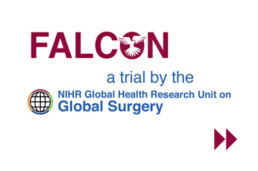
FALCON TRIAL
The FALCON trial looks into the prevention of surgical site infections (SSI) in low- and middle- income countries.
The health economics sub-study within FALCON is named KIWI (Key Resource Use In Wound Infection).
Surgical site infection (SSI) is a worldwide problem which has morbidity, mortality and financial consequences .Previous studies in LMICs on the costs of SSI have been limited by small sample size single-centre hospitals which did not capture costs occurring after hospital discharge. The lack of follow up is a problem as SSI can occur after discharge and costs associated with SSI have been shown to persist beyond 30 days. The main FALCON trial is assessing different treatment combinations to reduce Surgical Site Infection (SSI). The FALCON KIWI sub study is assessing the resource use and costs for patients with and without SSI across several hub countries.
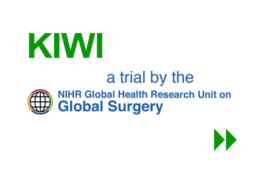
KIWI STUDY
The FALCON KIWI sub study is assessing the resource use and costs for patients with and without SSI across several hub countries. KIWI includes resource use collection (via additional CRFs) up to the 30-day follow-up assessment for patients and extended follow-up for any patients with an ongoing wound infection up to 60 days post-surgery.’
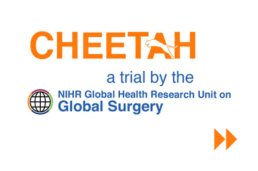
CHEETAH TRIAL
The main CHEETAH trial is assessing whether the practice of using separate, sterile gloves and instruments to close wounds at the end of surgery can reduce surgical site infection at 30-days post-surgery for patients undergoing clean-contaminated, contaminated or dirty abdominal surgery, compared to current routine hospital practice.
Using information from FALCON KIWI and primary data collection in CHEETAH, the cost-effectiveness of the changing gloves/instruments prior to wound closure compared to current routine hospital practice will be assessed.
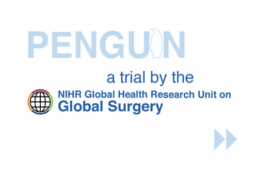
PENGUIN TRIAL
The PENGUIN trial is a 2 x 2 factorial, international pragmatic randomised trial. The trial aims to assess whether preoperative chlorhexidine mouthwash when compared to no-mouthwash-surgery can reduce incidence of post-operative pneumonia (POP) and whether perioperative liberal oxygen versus restrictive oxygen can reduce incidence surgical site infections (SSI) at 30-days among abdominal surgery patients.
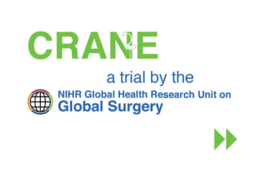
CRANE STUDY
CRANE is a feasibility study of a nutritional intervention to improve outcomes after cancer surgery in low-income countries. It aims to identify and validate a nutritional screening tool; identify a low cost sustainable nutritional intervention; and investigate recruitment and retention, data collection methods and the acceptability of a nutritional intervention to improve outcomes after cancer surgery in low- and middle-income countries.
The health economics component looks at the feasibility of collecting economic data and the design of resource use forms for a full trial. The health economics is particularly important essential given the importance of cost effectiveness in developing a long term sustainable solution.
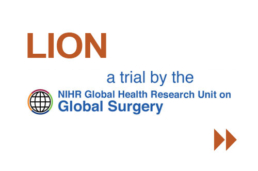
LION STUDY
LION (LaparoscopIc Versus Open Appendectomy): Cost comparison in a lower- middle income setting
This study aims to compare the outcome and cost of conventional open and laparoscopic appendectomy for clinically confirmed, uncomplicated, acute appendicitis in a low resource setting. Although the cost effectiveness of laparoscopic surgery has been investigated previously in high human development index (HDI) countries, similar studies are lacking in low and middle HDI countries.
Led by Dr Adewale Adisa at the NIHR hub in Nigeria, this study will compare outcomes following open and laparoscopic appendectomy in approximately 150 patients at 3 hospitals in Nigeria.
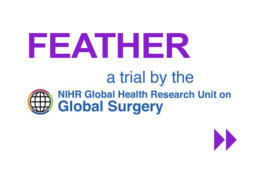
FEATHER STUDY
FEATHER is an investigation using qualitative methods embedded within several international multi-centre randomised trials (a study within a trial or SWAT).
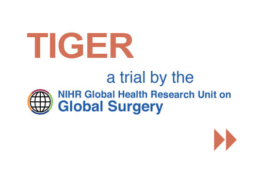
TIGER STUDY
TIGER (Task shifting Inguinal hernia Repair between surgeons and technicians): development of a randomised trial in low and middle income countries
Can technicians perform mesh inguinal hernia repair safely and cost-effectively in rural surgical settings in low and middle income countries?
This pilot trial aims to investigate delivery of a standardised, measurable training programme for technicians to perform a mesh inguinal hernia repair.
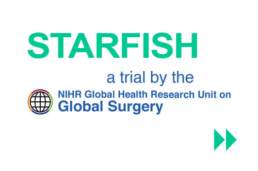
STARFISH STUDY
SToma cARe For Improvement reSearcH (STARFISH): Epidemiologic study of stoma cases in Lower- and Middle-Income Countries and qualitative research on the challenges on stoma care.
The STARFISH study uses a mixed methods approach to assess the burden and challenges of stoma care in low and middle income settings.
Starfish comprises 3 separate sub-studies:
1. A survey at selected healthcare facilities to collect data on stoma incidence, types, indications and complications.
2. Focus groups and one-to-one interviews with patients, carers and health care providers involved in stoma care
3. Development of a questionnaire for stoma patients in low and middle income settings to collect standardised data on stoma care
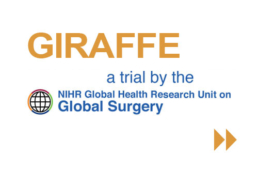
GIRAFFE STUDY
GIRAFFE (a patient-blinded, international, multicentre, cluster-sequence, randomised controlled study) uses an on-line education/training tool to improve in-theatre performance and perioperative care of patients undergoing emergency laparotomy and thereby seek to reduce postoperative hospital deaths.
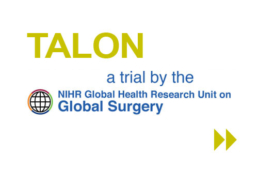
TALON STUDY
TALON is a sub-study embedded in the FALCON and CHEETAH trials, run as part of an NIHR Doctoral Research Fellowship in Global Surgery. The aim of the sub-studies is to improve the quality and efficiency of surgical trial methodology across low- and middle-income countries.
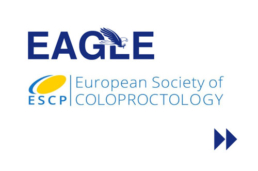
EAGLE STUDY
The ESCP Safe-anastomosis Programme in Colorectal Surgery (EAGLE) is an international, cluster randomised-sequence study of a Safe-anastomosis Quality Improvement Intervention to reduce anastomotic leak following right colectomy and ileocaecal resection
Anastomotic leak is a severe, potentially life-threatening complication following right colectomy. Internationally, anastomotic leak occurs after 8% of right colectomies. Prospective cohort data demonstrate that patient selection, intraoperative factors, and technical variation are risk factors for anastomotic leak.
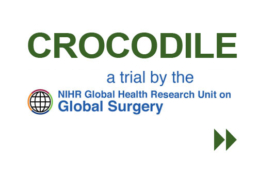
CROCODILE STUDY
‘Little is known about colorectal cancer treatment delivery in India and the associated costs. CROCODILE aims to identify financial and non-financial barriers for colorectal cancer treatment compliance in India.’
